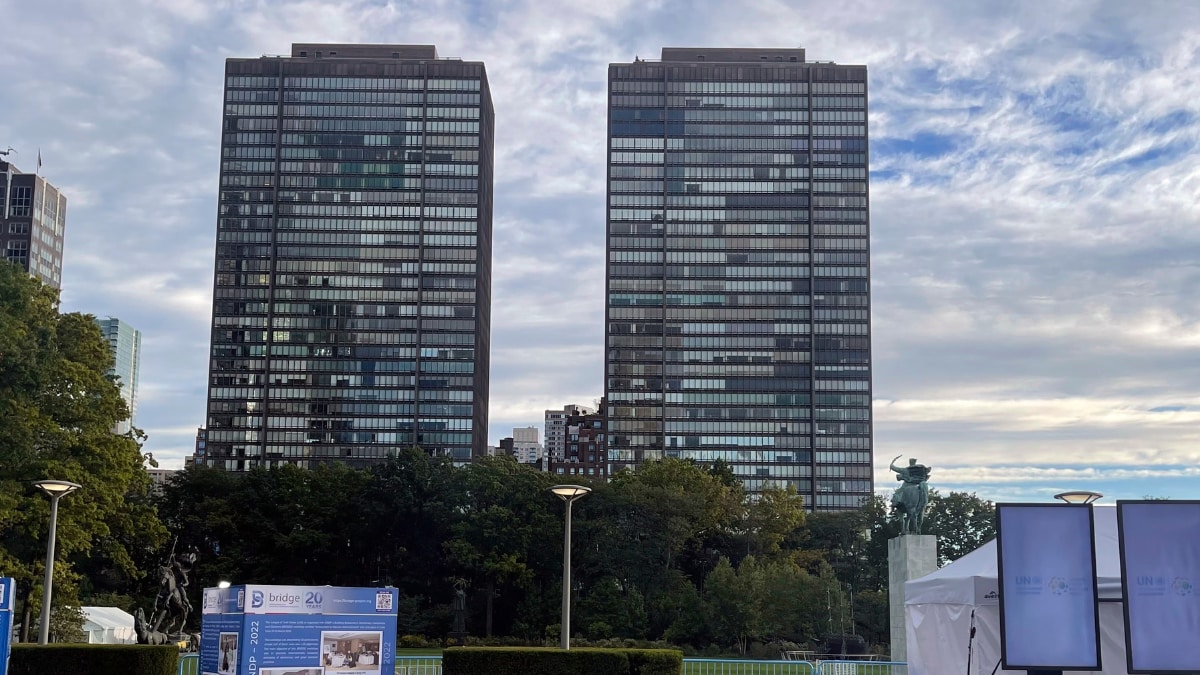For me, it was Kofi Annan, the former Secretary-General of the United Nations, who had described it the best: “More than ever before in human history, we share a common destiny. We can master it only if we face it together. And that, my friends, is why we have the United Nations.”
In the current scenario, the United Nations undeniably grapples with geopolitical tensions and contends with various member states pursuing their own conflicting interests, thereby testing the global order. However, it would be unjust to disregard the pivotal role it has undertaken in delivering vital healthcare assistance to those in dire need, combatting the most lethal health crises, and contributing to the pursuit of a more inclusive world for everyone.
As we mark the anniversary of the founding of the United Nations, we should take a moment to reflect on all that has been accomplished in terms of universal health coverage, and the role that the UN and World Health Organisation (WHO) can play in shaping the future that is ahead of us.
The global guardian of public health
The United Nations, since its inception, has been actively involved in promoting and protecting health worldwide. The transformation of the UN from a passive observer into a dynamic platform for global discourse and a pivotal player in shaping policies has been remarkable. By focusing on its inherent strengths as a platform for dialogue and the identification of emerging challenges, the UN has made substantial contributions. Through its various individual initiatives, the UN has consistently succeeded in elevating health-related matters onto the agenda of policymakers and public officials worldwide. This achievement stands in stark contrast to what one might have anticipated just a few decades ago.
Global health has undergone a profound transformation, evolving into a highly visible and politically significant field in recent decades. This shift has been characterised by a series of commitments, the development of a wide array of international health policy tools, the establishment of new organisations and initiatives, and an expansion of the scope of health-related discussions by the UN and its specialised agencies, particularly WHO. They have harnessed their constitutional functions, notably their convening power and their work in setting norms and standards.
Over the years, the United Nations has achieved noteworthy milestones in the realm of health. These milestones include pushing the 30-year-old tuberculosis epidemic into history, expanded immunisation programmes, smallpox eradication and the establishment of the Millennium Development Goals, which marked the inaugural recognition of the vital significance of women’s and children’s health, as well as the pressing need to combat infectious diseases. The commitment to addressing global health challenges continued with events such as the United Nations General Assembly Special Session on HIV/AIDS, where the profound urgency of the HIV/AIDS epidemic was emphasised, particularly regarding its impact on human life, dignity, and human rights.
These accomplishments extend further to encompass various vaccination programmes and initiatives. Additionally, the United Nations has maintained its commitment to health with initiatives like the High-Level Meeting on Non-Communicable Diseases, which culminated in a significant political declaration and the launch of the Global Strategy for Women’s and Children’s Health. All of these efforts align with the ongoing pursuit of the Sustainable Development Goals (SDGs), highlighting the UN’s enduring dedication to global health.
UN’s goal is not just to prevent another World War
The United Nations was founded in the wake of World War II, when the world was ready to have peace again. But over the years, the organisation has done more than just stopping conflicts and maintaining peace. Global health is far more multifaceted than is often perceived, and requires more than development aid to achieve. To achieve what we have today, we needed an integrated approach which included action on social determinants, social protection, the support for major health care programmes at the local and country level, and the global agreements. It was through the UN and its specialised agencies that we are able to be here.
The United Nations serves as more than just a venue for world leaders to engage in discussions, articulate their perspectives, and collectively determine strategies regarding matters of conflict, peacekeeping, and sanctions. It stands as the world’s most extensive engine for development, comprising a vast workforce of tens of thousands dedicated to enhancing various facets of global well-being. This dedicated workforce endeavours to advance causes such as the welfare of children, the support of refugees, the enhancement of global health, and a multitude of other critical initiatives.
Without a doubt, the Security Council needs to be reformed. As time has passed, it has become increasingly evident that the permanent members of the Security Council exhibit minimal inclination towards internal reform. Given this reality, it remains imperative for the other United Nations member states to persistently advocate for reform, as it is in their collective best interest. Nonetheless, doing away with the UN will be of no help. It might even push us back in our global efforts to achieve Right to Health for all.
While it may not be flawless, in the spirit of our collective humanity and our shared aspiration of achieving Universal Health Coverage for everyone, nations must collaborate to define the roles of the UN in the 21st century.
Mahek Nankani is Lead, Growth & Partnerships at The Educational Initiatives. Views expressed in the above piece are personal and solely that of the author. They do not necessarily reflect News18’s views.
Credit:Source link



